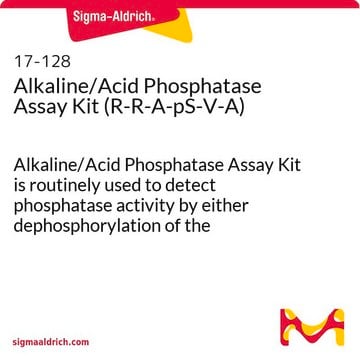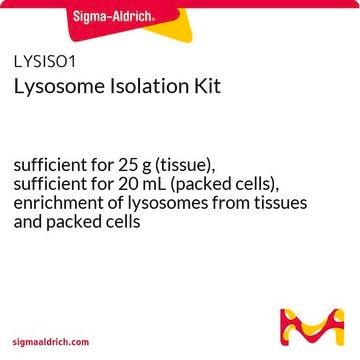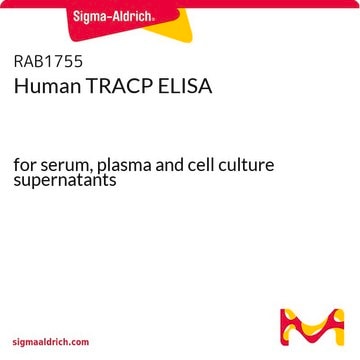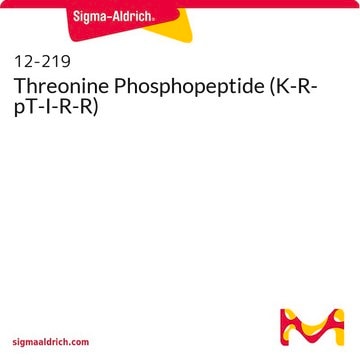CS0740
Acid phosphatase Assay Kit
1 kit sufficient for 1,000 assays (multiwell plates), 1 kit sufficient for 100 assays (tubes)
Synonym(s):
Acid Phosphatase Enzyme Activity Kit
About This Item
Recommended Products
Related Categories
Application
Biochem/physiol Actions
Kit Components Only
- p-Nitrophenyl phosphate tablets 5 mg 20 tablets
- Citrate buffer solution, 0.09 M pH 4.8 100 mL
- p-Nitrophenol Standard solution 10 mM 1 mL
- Acid phosphatase control enzyme .2 mL
Signal Word
Warning
Hazard Statements
Precautionary Statements
Hazard Classifications
Carc. 2 - STOT RE 2 Oral
Target Organs
Liver,Kidney
Storage Class Code
10 - Combustible liquids
Flash Point(F)
Not applicable
Flash Point(C)
Not applicable
Choose from one of the most recent versions:
Certificates of Analysis (COA)
Don't see the Right Version?
If you require a particular version, you can look up a specific certificate by the Lot or Batch number.
Already Own This Product?
Find documentation for the products that you have recently purchased in the Document Library.
Customers Also Viewed
Articles
Centrifugation separates organelles based on size, shape, and density, facilitating subcellular fractionation across various samples.
Centrifugation separates organelles based on size, shape, and density, facilitating subcellular fractionation across various samples.
Centrifugation separates organelles based on size, shape, and density, facilitating subcellular fractionation across various samples.
Centrifugation separates organelles based on size, shape, and density, facilitating subcellular fractionation across various samples.
Our team of scientists has experience in all areas of research including Life Science, Material Science, Chemical Synthesis, Chromatography, Analytical and many others.
Contact Technical Service













